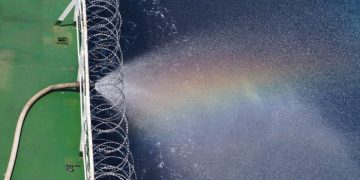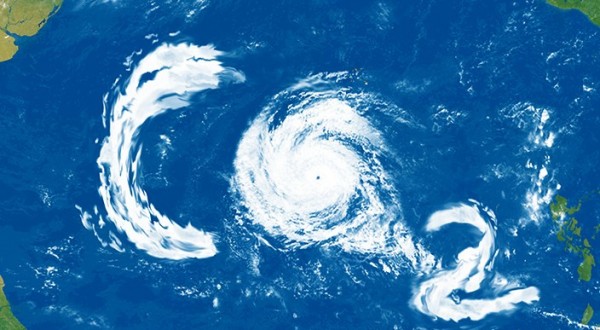According to BP’s Energy Outlook, the growth rate of carbon emissions more than halves, driven by faster efficiency gains and the changing fuel mix.
The growth rates of carbon emissions between 2014 and 2035 is expected to more than halve relative to the past 20 years: 0.9% p.a. compared with 2.1% p.a..
Given that the world economy is projected to grow only slightly slower than the historical trend, this represents a significant degree of “decoupling” of carbon emissions from economic growth.
This decoupling reflects significant increases that are expected in the decline of energy intensity (the volume of energy used per unit of wealth creation) and carbon intensity (carbon emissions per unit of energy consumption)
“The growth rate of carbon emissions from energy is likely to slow very sharply as we use energy more efficiently and we move towards lower carbon fuels.” Spencer Dale, group chief economist
A lower-carbon energy system

The world is embarking on a transition to a lower-carbon energy system. The pledges made by participating countries in their Intended Nationally Determined Contributions (INDCs) ahead of the COP21 meeting in Paris, and the level of agreement reached in Paris, have increased our confidence that the world will achieve this break from past trends.
However, despite the slowdown in emissions growth, the level of carbon emissions continues to grow, increasing by 20% between 2014 and 2035.
The widening gap between the projected path for emissions and, for example, the IEA’s 450 Scenario, illustrates the remaining challenge, despite the expected reduction in the growth of carbon emissions. The 450 Scenario adopts a specified outcome – the international goal to limit the rise in the long-term average global temperature to two degrees Celsius (2 °C) – and illustrates how it might be achieved.
Our base case already has global energy intensity declining at an unprecedented pace, and a fall in carbon intensity that matches what the world achieved in 1965-85, when first cheap oil displaced coal from the fuel mix and then nuclear displaced both oil and coal.
For the given projected path of GDP, achieving anything close to the IEA’s 450 Scenario by 2035 would require an unprecedented pace of improvement in both global energy intensity and carbon intensity.
A meaningful global price for carbon is likely to be the most efficient mechanism through which to achieve these improvements.
Exploring alternative scenarios
The base case in the Outlook presents the single “most likely” path for energy demand and different fuels over the next 20 years. But there are of course many risks and uncertainties surrounding the base case. It is possible to explore some of these uncertainties by varying a few of the key assumptions and judgements underpinning the base case and assessing their impact.

The speed of transition to a lower-carbon energy system has a significant impact on the outlook for energy
- A carbon price rising to $100/tonne (real US$2015) by 2035 in the OECD and other leading economies, and at least $50/tonne elsewhere.
- In transport, tougher vehicle CO2 standards, policies to encourage purchases of smaller vehicles, higher mandated biofuel blending, and improved public transport and urban planning to reduce mileage.
- Measures to ensure that 80% of the estimated potential for energy efficiency gains in industry and buildings are captured by 2035.
As a result, both global energy intensity and carbon intensity improve at unprecedented rates. Emissions peak in 2020 and by 2035 are nearly 8% below the 2014 level.
That still falls short of the IEA 450 Scenario, but goes well beyond the pledges made in participating countries’ INDCs at Paris.
Impact on energy demand and the fuel mix

Total energy demand still grows in the “faster transition” case, but at a reduced pace (0.9% p.a. compared with 1.4% p.a. in the base case). Non-fossil fuels supply all of the increase in energy. Fossil fuels decline slightly, with the share of fossil fuels in total energy falling from 86% today to around 70% by 2035.
Natural gas and oil still increase in the “faster transition” case, accounting for a little over half of total energy supplies in 2035, although oil demand is declining by the second half of the Outlook. Coal consumption suffers the most, falling by more than 30% to its lowest level since 2002.
The big winner in the “faster transition” case is renewables, with an almost six-fold increase in output (nearly 9% p.a.) and a 15% share of energy by 2035.
The rate at which renewables gain share between 2020-35 matches oil’s gain between 1908-23 – 15 years that included the Texas oil boom, the discovery of oil in the Middle East, the British Navy switching to oil, and the Model T Ford starting mass motorization.
Source: BP




























































